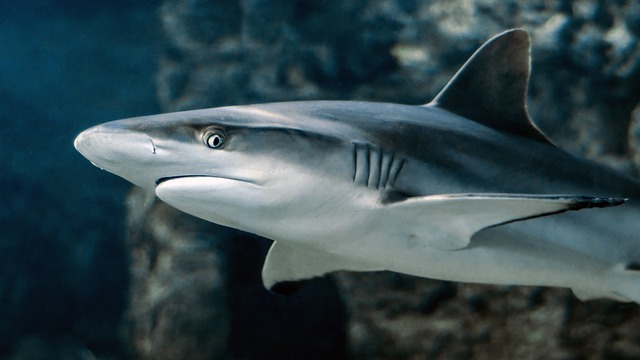Types of Sharks in Rhode Island
Diving into the depths of Rhode Island waters reveals a hidden world teeming with fascinating marine life, including a diverse array of shark species.
From the sleek and swift mako sharks to the iconic great white sharks, these captivating creatures inhabit the coastal and offshore waters of Rhode Island.
Whether you’re an avid shark enthusiast or simply intrigued by the wonders of the ocean, exploring the types of sharks found in Rhode Island waters is sure to ignite your curiosity and deepen your appreciation for the marine ecosystem.

Join us on an underwater adventure as we dive into the realm of these remarkable predators and uncover the secrets of their presence in Rhode Island’s aquatic domain.
Rhode Island waters offer a diverse range of shark species, making it an exciting destination for shark enthusiasts and marine enthusiasts alike.
Let’s delve into some of the notable shark species found in these off-coast waters:
Mako sharks
Mako sharks are known for their incredible speed and agility, making them impressive predators. With their streamlined bodies and sharp teeth, they are built for swift swimming and hunting. Mako sharks can be found in Rhode Island waters during the warmer months of summer, particularly in offshore areas.
Blue sharks
Blue sharks are one of the most common shark species encountered in Rhode Island waters. They have a distinctive blue coloration and are well-adapted to open ocean habitats. Blue sharks are known for their curiosity and are often attracted to fishing vessels, making them a popular target for blue shark fishing enthusiasts.
Thresher sharks
“Thresher shark” sharks are easily recognizable by their long, whip-like tails, which they use to stun and capture their prey. These sharks are often found in Rhode Island waters, where they feed on small fish and squid. Thresher sharks are known for their impressive jumping ability, frequently leaping out of the water to catch something.
Great White sharks
While sightings of Great White sharks in Rhode Island waters are relatively rare, they do occasionally visit the area. Great Whites are apex predators and can grow to impressive sizes. Their presence in Rhode Island waters is often associated with the migration patterns of their prey, such as seals.
Spiny Dogfish
Spiny Dogfish are small, slender sharks commonly found in the coastal waters of Rhode Island. They have distinctive spines in front of their dorsal fins and are known for their schooling behavior. Spiny Dogfish are commercially fished for their meat and are considered an important species in the region.
Hammerhead sharks
Hammerhead sharks are characterized by their unique, hammer-shaped heads. While not as commonly encountered in Rhode Island waters as some other species, they have been sighted in the area. Hammerheads have specialized sensory organs that give them an advantage in locating prey, making them efficient hunters.
Tiger sharks
Although tiger sharks are more commonly associated with warmer tropical waters, they have been spotted in Rhode Island waters on extremely rare occasions. Known for their distinctive patterned markings, tiger sharks are opportunistic feeders and can consume a wide range of prey, including marine mammals and sea turtles.
Basking sharks
Basking sharks are the second-largest shark species in the world, known for their massive size and gentle nature. They are filter feeders, primarily consuming plankton. While they are typically found in deeper offshore waters, there have been sightings of basking sharks in Rhode Island waters, providing a unique opportunity to witness these gentle giants.
Sand Tiger Sharks
Also known as the Ragged-Tooth shark, these sharks have a distinctive appearance with long, protruding teeth and slender bodies. Small shark can often be spotted near shipwrecks and rocky areas.
Nurse sharks
These sharks are known for their nocturnal behavior and can be found in shallow coastal waters. They have a robust build and are typically docile, making them less of a threat more sharks are to humans.
Smoothhound sharks in rhode island
Smoothhound sharks are smaller in size than four sharks and have streamlined bodies. They are commonly found in sandy or muddy bottoms and are known for their excellent sense of smell.
Porbeagle sharks
Porbeagle sharks are cold-water sharks that can be found in the North Atlantic Ocean, including Rhode Island waters. They have a stocky build and are known for their powerful swimming ability.
Bull sharks
While less common in Rhode Island waters, there have been occasional reports of bull sharks venturing into coastal areas. Bull sharks are known for their ability to tolerate both saltwater and freshwater environments.
Conclusion
In conclusion, the waters of Rhode Island harbor a captivating diversity of shark species, each with its unique characteristics and role in the marine ecosystem.
From the thrilling encounters with great white sharks to the graceful presence of mako sharks and the enigmatic beauty of thresher sharks, these creatures add an element of awe and wonder to the coastal and offshore waters.
As we appreciate the significance of sharks in maintaining the delicate balance of the underwater world, it is essential to prioritize their conservation and protection.
By fostering a deeper understanding and respect for these magnificent creatures, we can ensure the preservation of their habitats and contribute to the overall health of Rhode Island’s marine environment.
So, whether you’re a dedicated shark enthusiast or simply curious about the wonders of the ocean, the exploration of sharks in Rhode Island’s waters is an extraordinary journey that unveils the marvels of nature’s creations.
It’s important for researchers to note that the presence and abundance of different shark species can vary throughout the year and may be influenced by factors such as water temperature and food availability.
As an expert fisherman, I collaborate with the Atlantic Shark Institute, using acoustic receiver arrays to monitor shark movements around Cape Cod. This pioneering work helps us understand shark behavior, which contributes significantly to reducing shark attacks by providing real-time data through shark tracking devices.